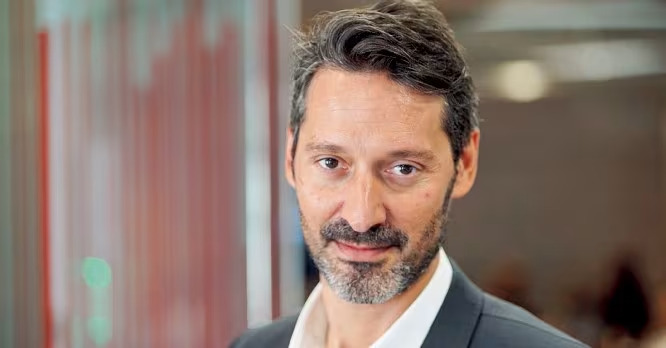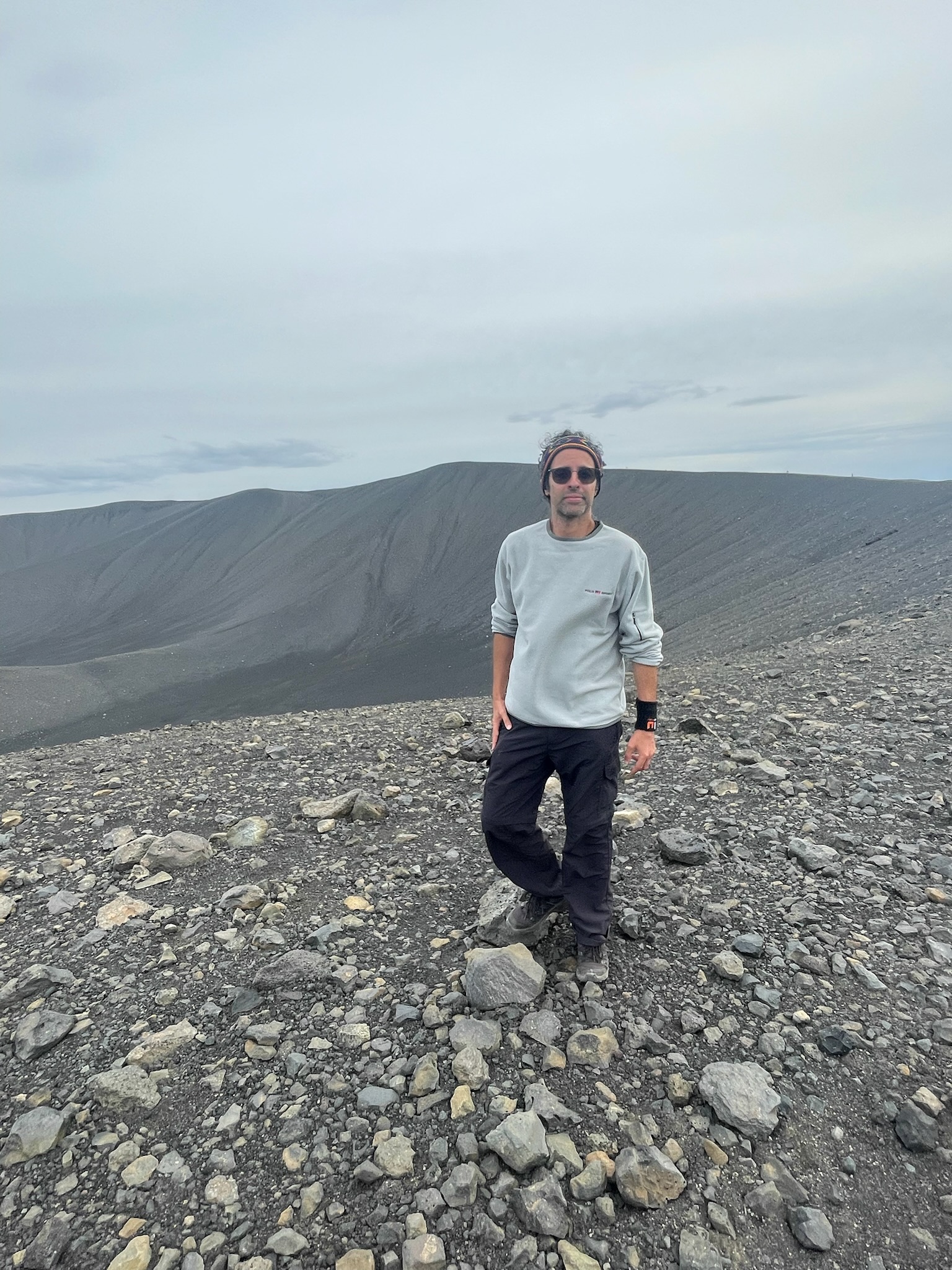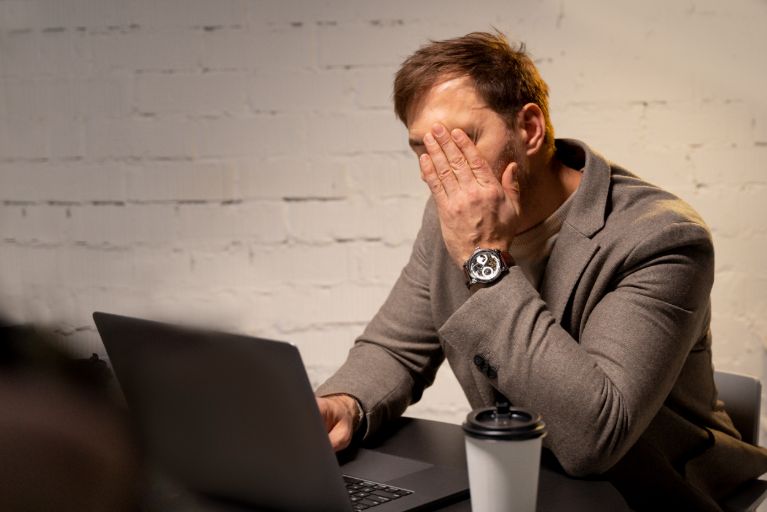Owning Your Data: The Key to Longevity

Data ownership, personalized health insights, and biohacking practices like GlycanAge testing have transformed Sebastien's journey toward longevity and optimal performance.

In today's world, the ability to own and understand your health data has never been more important. In this interview, we sit down with a tech industry veteran turned biohacking enthusiast, who shares his health journey - from a scary diagnosis to achieving peak performance. Learn more about Sebastien Badault in our interview.
What is your chronological age and what is your GlycanAge?
I'm 51 years old, and my GlycanAge is 28, which I was very surprised about. I even asked if your company made a mistake.
That's amazing. And how did you first hear about GlycanAge?
Uh, that's a good question. It's hard to tell because I read and listen to so many things that I can't pinpoint where exactly I saw it.
The longevity world is something that I'm really passionate about. So every time something new comes up, I want to try it out. I love learning new things about my body.
I can tell you that this summer, right after I got my results, I was at a gathering, and I met the CEO of a longevity clinic in Paris. We talked about many different things, and when I mentioned my GlycanAge he said he was 34 and his GlycanAge was like 43, so I have a much better result.
You know, It’s really hard for me to get any blood out. That’s why I loved testing with you guys. I didn’t have to fill in a whole vial of blood, since 4 drops were all that it took.
The whole packaging situation is very well done. It reminded me of Apple products.
I had two consultations, and my second consultation went deeper into explaining your process, the way that you analyse some of the markers and such.
I'm constantly applying changes. I think I've always kind of done a lot of trial and error, especially in nutrition, supplementation and also obviously on what I do in terms of workouts, sleep, meditation, cold therapy, etc.
What's interesting is that for a few months, I’ve changed my training, and now I really make sure that I get a lot of zone two cardio in, which I wasn't doing so much of. I was doing a lot of HIT training.
I do very little endurance, which is weird because I used to do triathlons. And now I've kind of brought everything together where I found my right path.
Can you tell us a bit about your diet? What do you usually eat for breakfast lunch and dinner?
I don't eat breakfast because I fast so I’ll usually just have coffee.
My first meal will be around one. For lunch, I try to eat a lot of protein, because there's this idea that you should have at least one gram of protein per pound of body weight.
So something like turkey or eggs or salmon and vegetables and then the same for dinner.
If I lift weights during the day, I'll do a recovery protein shake.
I do eat pasta once in a while, but overall I eat very little carbs. I try to eat gluten-free as much as possible because I know that gluten has a tendency to cause harm. I'm not gluten intolerant, but when I have it, it slows me down and tires me out. So I try to have it as little as possible, which is hard to do when you live in Paris.
I can imagine. Do you take any supplements?
I take a multivitamin and 2 different kinds of magnesium, one in the morning and one at night. Also, CoQ10, probiotics and a nitrous oxide booster before I train.
That's a bunch of pills. And I can tell you that when I leave on a trip, I take all my daily pills and because of them, I don’t experience jet lag.
What? Tell me more about that.
I think a big part of it is the supplementation, the nutrition and the sports that I do. For example, as soon as I land in Singapore on Saturday, I'll go to the gym and work out.
And then usually I'm able to go to sleep. I'm never awake in the middle of the night and unable to sleep. I think supplementation has helped me through that process because I used to go to China a lot because I used to run, Alibaba, which is a big Chinese company.
That’s a 9-hour or 12-hour difference. It was very difficult at the beginning, since I wasn't doing all this supplementation, and I was suffering from jetlag.
When I started supplementing and having this routine of working out when I landed, it just went away.
Was there a specific event in your life that made you go on this biohacking journey?
Yeah, I think there were a few, both linked to my professional journey.
I was a sporty kid. I played soccer and tennis. But then at age 22 when I started working and having kids, I stopped for a long time for like ten, 15 years.
And then what got me back to sports was I started running, which I've never done before.
My whole career has been spent in the tech industry. So when I got out of school, my first job was in a startup, then I went to Amazon and after that to Google and lastly to Alibaba.
And the interesting thing is that these companies are very data-driven. Jeff Bezos was in finance before he was in e-commerce. Larry Page and Sergey Brin, the founders of Google, they're engineers. All they think about is data.
So when I started running, when I was about 35, I bought my first Garmin watch and heart rate monitor.
It's a hard thing starting to run, it's hard to learn how to breathe and all these different things. But the data is really what drove me because also I'm very competitive.
I want to run faster, longer and all these different things. So it really hooked me.
The second thing is that, when I started training for triathlons, it was even more exciting.
I was 43, training for half Ironman and I did some tests and I realized that I had a heart condition from birth, which I didn't know about.
And they told me, well, you're fine and you can not do anything and live a long life. But if you exert yourself a lot, like you do when you're trying to do triathlons, then you run the risk of having sudden heart stoppage.
So you have two options. You can either do nothing, but you have to stop training the way you're training, or we can repair it. That means having open heart surgery.
I didn't even think about it, I just asked what's the next time you can do surgery. And I had the surgery a month after, which was scary.
But within a month, I was back on a bike. I've done a triathlon since, and I feel better today than I did before that.
The crazy thing is that I actually ran a marathon and did a bunch of triathlons with that heart condition without knowing it.
Obviously, it changed my perception of life, death, and all these different things, but also it put me on this path of biohacking.
I think that we're at the beginning of this incredible evolution of making sure that we can help people be at the absolute top of their physical and mental performance for the longest possible time. And I want to be a part of that.
I think that in 50 years we will look back at the way that we did medicine like the Middle Ages.
When I see an old man at the gym and he's still lifting weights, I really admire that. But I think that there's a real issue of education. I think people don't know enough about what ageing means or what it creates, both in the body and in the brain, and all the things that we can do to make sure that we limit the impact of ageing on our bodies.
What are some of your favourite biohacks that you would like to recommend to our audience?
I think hot and cold is really amazing. The place I'm staying at has both a sauna and a cold plunge. I've been to it every day and I feel it’s really incredible for recovery.
I think every person has their own path, for me hack number one is about measuring.
GlycanAge is a good example. You should also measure your microbiome, and look at your blood markers.
In France, you don't even get the data from your blood tests. Your doctor gets the blood test, and then if there's something wrong, they tell you, but you don't get access to it.
I'll give you a crazy story about that. Because of my heart situation, every two years, I have to go and do a stress test.
I'm pedalling on a bike and they see how my heart reacts to it. And I've been doing all these tests for like, almost ten years. And when I went back last year, I asked if they could look back at my previous tests and compare them.
And they're like - We don't have your records. The doctor left the clinic and took all the records with him.
So I actually went to that doctor and I was able to get my data and now I own it.
I think for me the first step in biohacking is to measure and to understand what is specific to your body, and what you need to adapt.
It's a constant testing and learning process. It's it's never over. That's the fun thing about it as well.
That's wonderful. So you've probably seen a lot of corporate wellness programs in your career. Do you remember any that you particularly liked?
Google was very ahead of its time in doing some of these things. I think in 2007 they gave everybody in the company a bike. So that you’re able to bike to work, which I thought was really great.
They had gyms in their offices, even in Paris, we had a gym with two coaches on site that could coach you based on what your goals were. I think that was really phenomenal.
They had programs to help people stop smoking, which was really great. I left in 2014, but I'm sure they've done a lot more since.
In the Zurich office, they had this place where you could go and sit on this very comfortable seat, it was dark and there was like a blue aquarium, making it a great place for recharging and meditating.
Everyone's journey is different and it's their choice to take care of themselves in whatever way they deem right. It's very personal so you don't want to encroach on that.
And also, your job is where you spend a lot of your time. As we train people for their work skills, it would make sense to also train them on their physical and mental skills.



